Research
Overview
Our research produces and disseminates new knowledge about information and technology strategies that can foster government innovation and improve public services.
We bring together researchers from many disciplines to study problems from multiple perspectives with multiple research methods.
Our projects focus on significant questions in public administration, organizational studies, information science, public policy, and managerial practice.
Our projects provide rich data and experiential learning opportunities (along with valuable research data for theses and dissertations) to study contemporary public problems and complex organizational settings.
Research sponsors include U.S. and international funders:
- US National Science Foundation
- Canadian Social Sciences and Humanities Research Council
- Mexican National Council of Science and Technology
- The United Nations
- The World Bank
- US Department of Justice
- Environmental Protection Agency
Student Technology Innovations Lab Experience (STILE)
The Student Technology Innovations Lab Experience (STILE) brings together University at Albany students, faculty, and researchers to help government agencies find solutions to pressing public problems.
STILE provides governments with research, development, testing, and evaluation expertise while providing experiential learning. The program focuses on applying current or emerging technology to improve government operations or services.
Experts and students develop prototypes, feasibility studies, and proof of concept solutions. Governments then use the result to make informed decisions on investments, policy development and work practices to maximize the benefits of using these technologies.
Past participants
- New York State Department of Health (NYSDOH)
- Metropolitan Transit Authority (MTA)
Examples of research & development topics
- Open Data Visualization Techniques - 2018 University at Albany Research Report
- Ultra Wideband for Public Transportation
- Computer Vision for Combatting Urban Blight
- Building chatbots
What people are saying
- "The STILE program has provided a tremendous opportunity for the Health Data NY program to expand its capability in presenting our own health data. We learned a great deal about what makes a good open dataset and ways to improve how we publish data." - Director of Health Data NY for NYSDOH
- "My summer at CTG UAlbany went far beyond what I expected and I couldn’t have imagined a better experience. This project allowed me to learn new technologies, and explore different areas of computer science including data analysis, data manipulation, data visualization, web design, and more. My time at CTG UAlbany greatly enhanced my knowledge and reinforced how exploring different areas can be positive.” - Former student
- “This was a great opportunity to learn about current technologies and apply them to a project with a big impact...I loved working at CTG. Thank you to CTG and UAlbany for helping me become a better developer.” - Former student
- “As a researcher in training, I very much enjoyed working on a team made of people with different types of expertise...We were able to feed off one another’s ideas and accomplish more because our different skill sets complemented each other. I was so excited to see my ideas become actualized in our new data visualization tools, and that was one of the unique experiences that I enjoyed while working at CTG.” - Former student
Faculty & Research Fellows
CTG UAlbany works closely with a global network of researchers who serve as Faculty and Research Fellows.
Our Faculty Fellows come from various UAlbany departments, while Research Fellows come from external universities.
All Fellows actively engage in academic writing and new research activities; complementing our skills with their own.
See our current Faculty & Research Fellows here.
Visiting Scholars Program
The Center for Technology in Government (CTG UAlbany) welcomes scholars and practitioners engaged in research and practice related to the adoption and use of information and technology by public organizations. We welcome three types of visitors:
1) Visiting scholars: Scholars and faculty members outside of the University at Albany with a PhD degree and whose primary purpose during their stay is to conduct independent research, contribute to CTG UAlbany’s current research projects, and build research networks.
2) Visiting student researchers: Graduate students who are currently enrolled in a doctorate degree program at a university and whose primary purpose during their stay is to accumulate hands-on research experience on the topic of his/her doctoral dissertation under the guidance of CTG UAlbany faculty, staff, and fellows. Visiting PhD student researchers must be at least in their second year into the program.
3) Visiting professional fellows: Individuals working in public and private organizations with a University graduate degree, at least five years of working experience, and whose primary purpose during their stay is to discuss ideas and potential projects to be implemented in their organizations with CTG UAlbany staff.
Applications will be accepted for short periods of time (between two and eight weeks), for one semester (fall or spring, may or may not include the winter/summer), and for two semesters (may or may not include the winter/summer). We will not consider applications that are longer than one year. In addition, applicants may choose between an in person stay, which would take place in Albany, NY, or a virtual stay, which would take place remotely. Virtual visitors are not eligible for short periods of time.
Application process
Applications may be submitted once a year between February 1 and March 31. We will not consider applications that are not submitted within this period of time. If you are interested in applying, please, send all of the following materials to Mr. Brian Burke, CTG UAlbany’s Managing Director:
1) A cover letter, no more than two pages long (500 words) and on university/institution letterhead, that includes:
- The applicant’s home university/institution and position.
- The type of visitor and the type of stay (in person/virtual).
- The preferred start and end dates of the stay/online commitment. Please, notice that stays should not start sooner than December 15 or later than September 1 of the following year.
- A brief (no more than one paragraph – 300 words) overview of the goal of the stay.
2) An updated CV or resume.
3) A detailed statement, 3-5 pages long, that includes at least:
- Information about the purpose of the visit/online commitment and desired dates of stay/online commitment, description of the project(s)/activity(ies) to be undertaken during the stay/online commitment.
- Proposal of deliverables (see below).
- Proposal of CTG UAlbany’s individual/s the applicant would like to be mentored by/work with. Please, take into account that, although you will be assigned a mentor/host, we may not be able to accommodate your request of working with a specific person.
- An explanation of how the stay/online commitment at CTG UAlbany is critical for the applicant and will further his/her career development.
4) One letter of recommendation from a past CTG UAlbany visiting scholar or past or current CTG UAlbany collaborator. If the applicant does not know anyone related to CTG UAlbany, then, three letters of recommendation will be needed.
All applicants will receive a decision letter by May 1.
Deliverables
Along with their mentors/hosts at CTG UAlbany, and depending on the length of their stay (or commitment for online visiting scholars), all three types of visitors will have to agree with one or more of the following deliverables in advance:
1) Visiting scholars:
- Deliver a formal presentation/lecture (required)
- Engage in formal or informal discussions with CTG UAlbany’s graduate students
- Present guest lectures in ITM (Information and Technology Management) classes
- Undertake collaborative research with CTG UAlbany faculty or staff by identifying research grants and potential joint research projects, producing a joint article, producing a joint paper/poster for a conference, co-editing a special issue in a journal, etc.
- Organize a joint research colloquium
- Other (to be determined between the visiting research scholar and her/his mentor)
2) Visiting student researchers:
- Deliver one formal presentation on his/her work-in-progress (required)
- Engage in formal or informal discussions with CTG UAlbany’s students
- Produce a joint article or conference paper/poster
- Other (to be determined between the visiting student researcher and her/his mentor)
3) Visiting professional fellows:
- Deliver one formal presentation on his/her organization (required)
- Produce a report of work done during his/her stay at CTG UAlbany and why it was useful
- Other (to be determined between the visiting professional fellow and her/his mentor)
Other important information
The CTG UAlbany Visiting Scholar Program does not provide funding. We provide workspace, basic research resources, and opportunities to meet with staff and others at the University. Therefore, all applicants must provide their own funding for travel, accommodations, and other expenses.
For in person stays, please, notice that CTG UAlbany is located on the University at Albany's main campus and that travel to the University requires a car or the use of public transportation.
In addition, the University at Albany does not provide short- or long-term housing. Visitors are responsible for finding their own lodging.
Past Visting Scholars (41)

Laura Hand
Current Position: Associate Professor at the University of North Dakota
Year at CTG: 2024-2025
Country: USA
Research Focus at CTG:
Laura’s research is focused on the public encounter: how public employees interact with the people they serve and what is accomplished within those interactions. Her work has examined interpersonal interactions in Arizona’s WIC program, as well as social media interactions on Facebook from local governments and police agencies. Currently, she is focused on broadening her research into technology in the public interest, examining how governments and nonprofit organizations use AI and how these technologies mediate the relationship between organizations, their employees, and the public.
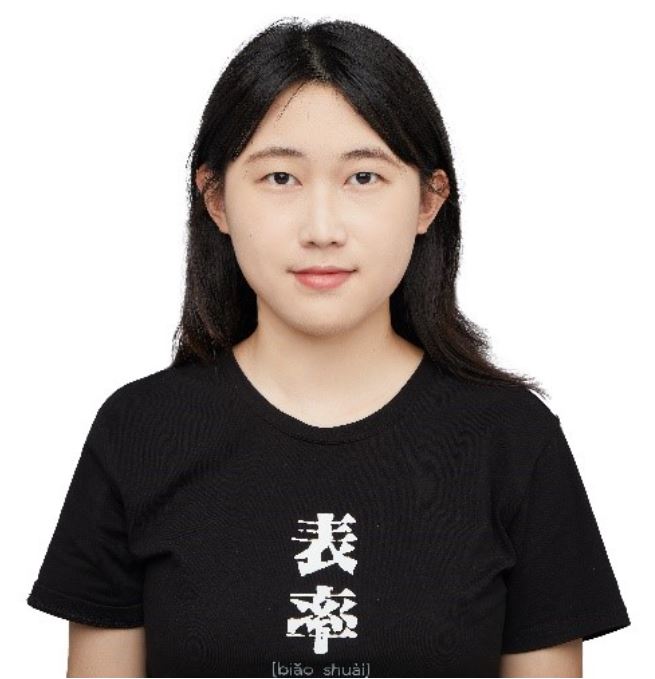
Jie Huang
Current Position: PhD Candidate, Renmin University of China
Year at CTG: 2024
Country: China
Research Focus at CTG:
- Data use in smart cities
- Data governance strategy and policy in digital government
- Smart data governance
- Standardization governance
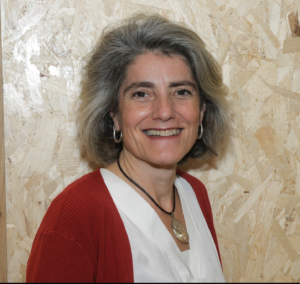
Karma Peiro
Current Position: PhD Candidate, Pompeu Fabra University (Barcelona, Spain)
Year at CTG: 2024
Country: Spain
Research Focus at CTG:
Karma Peiró is a PhD candidate at Pompeu Fabra University (Barcelona, Spain). She has been a journalist specializing in Information and Communication Technologies (ICT) since 1995. Currently, she serves as the Executive Director of the Visualization for Transparency Foundation (ViT), which advocates for the use of open data to empower citizenship and ensure accountability of public information.
Additionally, Karma is the Co-director of the Master’s degree in Visual Tools to Empower Citizens, a program created by the ViT Foundation. She also teaches the "Ethics & Democratic Culture" course within the same master’s program.
Furthermore, Karma holds positions as a professor in the Master’s degree in Data Science at the University of Girona (UdG) and the Bachelor's Degree in Digital Media at the Blanquerna School of Communication and International Relations. She has co-authored the report "Artificial Intelligence: Automated Decisions in Catalonia" (2020), which focuses on ethics and data protection, edited by the Catalan Authority of Data Protection- APDCAT.
Karma is an active member of various councils and committees, including the Advisory Council of the Ethics Observatory in Artificial Intelligence of Catalonia (OEIAC) and the Universitat Politècnica de Catalunya (UPC) Ethics Committee. She is also a member of the Advisory Council of CTG UAlbany Empowering Communities: Public Libraries, Inclusive Civic Engagement, and Artificial Intelligence.
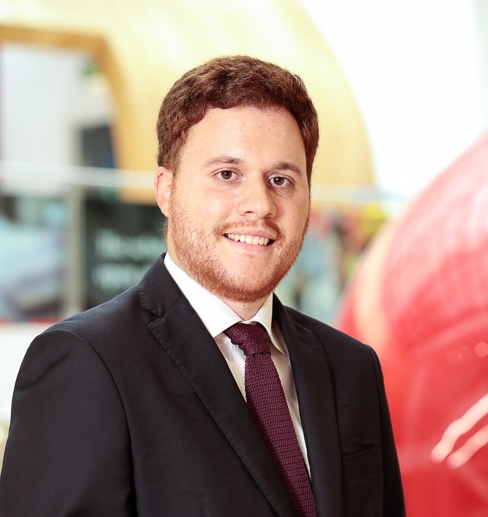
Francesco Gualdi
Current Position: Assistant professor at Regent’s University London
Year at CTG: 2023
Country: United Kingdom
Research Focus at CTG:
Francesco Gualdi, Ph.D., is Lecturer (Assistant professor) in International Business and Technology at Regent’s University London, and Associate Guest Teacher at the London School of Economics and Political Science.
He holds a PhD in Enterprise Engineering from Tor Vergata University in Rome, Italy. His main research interests cover the areas of ICT adoption in public sector, e-government, digitalization of the Public Administration, impact of technology on policymaking activity.
He received a MA in International Public Affairs from LUISS University in Rome, and a MA and a BA in Political Science – International Relations from Bologna University. Prior to the academic career, he served as strategic adviser to the Minister of European Affairs within the Italian Government (2014-2018).
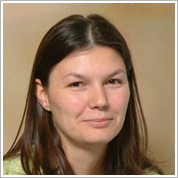
Greta Nasi
Current Position: Director for the Master of Science in Cyber Risk Strategy and Governance
Year at CTG: 2023
Country: Spain
Research Focus at CTG:
Greta Nasi holds the position of Director for the Master of Science in Cyber Risk Strategy and Governance, a joint program between Bocconi University and Politecnico di Milano. Additionally, she serves as an Associate Professor in the Department of Social and Political Sciences at Bocconi University. Prior to this role, she held the position of Director of Research for Government from 2016 to 2022 and previously served as the Director of the Public Management and Policy Department at SDA Bocconi School of Management from 2012 to 2016. Her research focuses on public administration, digital government, value co-creation, and cybersecurity policy. Greta Nasi has published in several public administration journals and actively collaborates with numerous international organizations and governments to promote innovation for value creation.
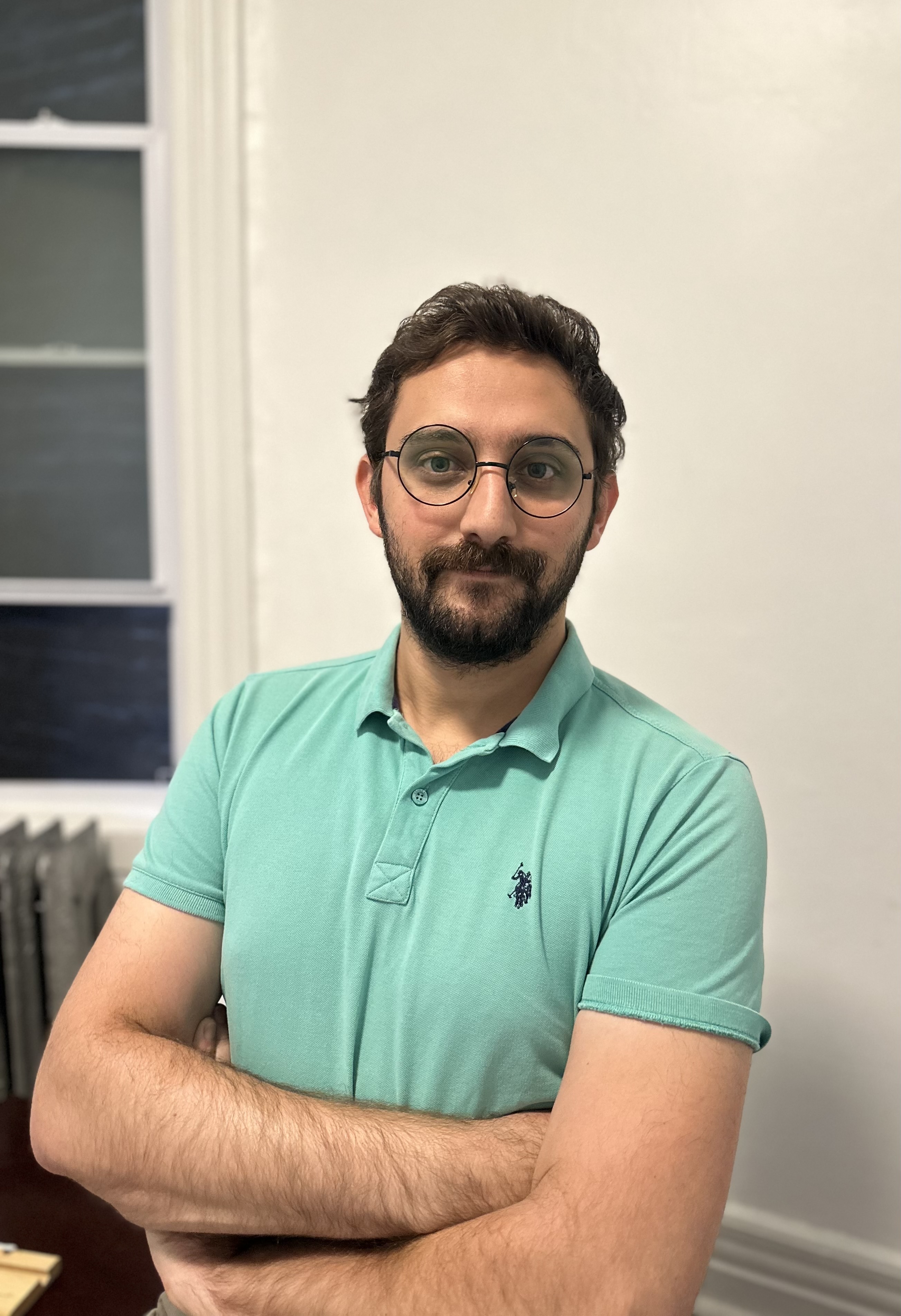
Niyazi Karabulut
Current Position: PhD Candidate, Middle East Technical University
Year at CTG: 2023
Country: Turkey
Research Focus at CTG:
- Electronic Participation in Government
- Digital Exclusion and Divide in Turkey
- The role of Think Tanks in Decision-Making
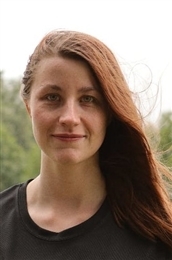
Isabelle Fest
Current Position: Utrecht School of Governance, Utrecht University, The Netherlands
Year at CTG: 2022
Country: Netherlands
Research Focus at CTG:
- Algorithm use in police
- Responsible algorithmization and public values
- Ethnographic fieldwork
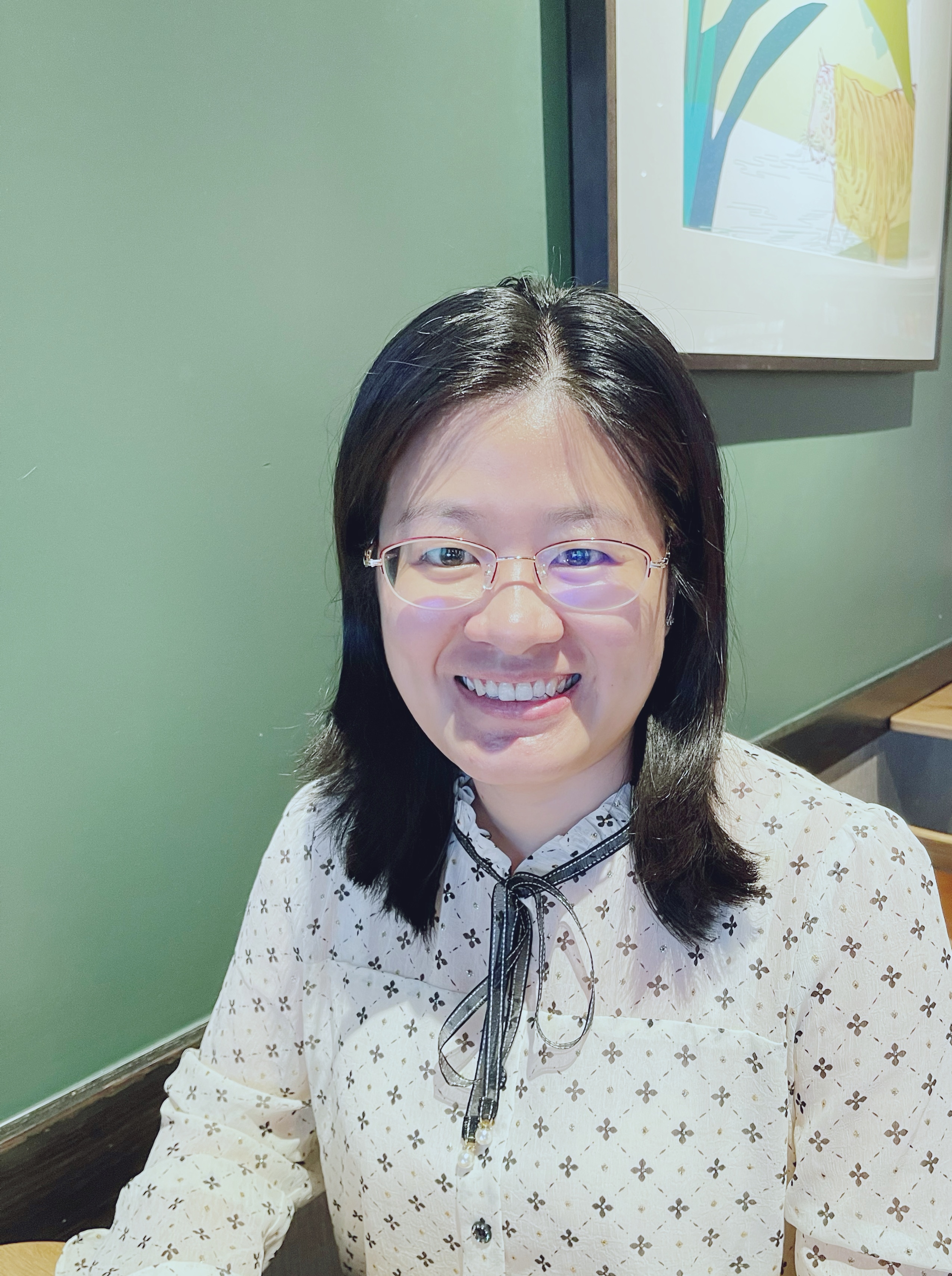
Yu Zhang
Current Position: Shanxi University of Finance and Economics
Year at CTG: 2022
Country: China
Research Focus at CTG:
- Discretionary of open government information
- Digital divide and equalization of public services
- government-citizens interaction in Cyberspace
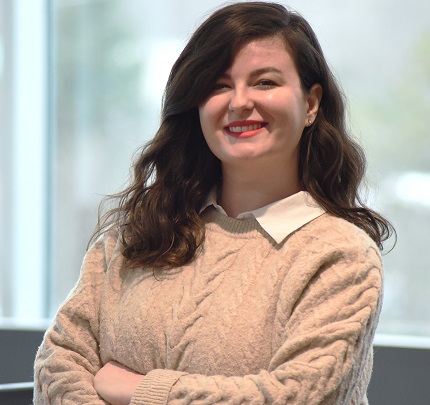
Mergime Ibrahimi
Current Position: Master of Science in Public Sector Innovation and eGovernance (PIONEER)
Year at CTG: 2019
Country: Kosova
Research Focus at CTG:
Mergime worked on a master thesis during her time at CTG UAlbany as part of an Erasmus Joint Master program between three universities. She spent her first semester at KU Leuven (Belgium), the second semester at University of Münster (Germany), and the third semester at Tallinn University of Technology (Estonia). She was pursuing a Master of Science in Public Sector Innovation and eGovernance (PIONEER).
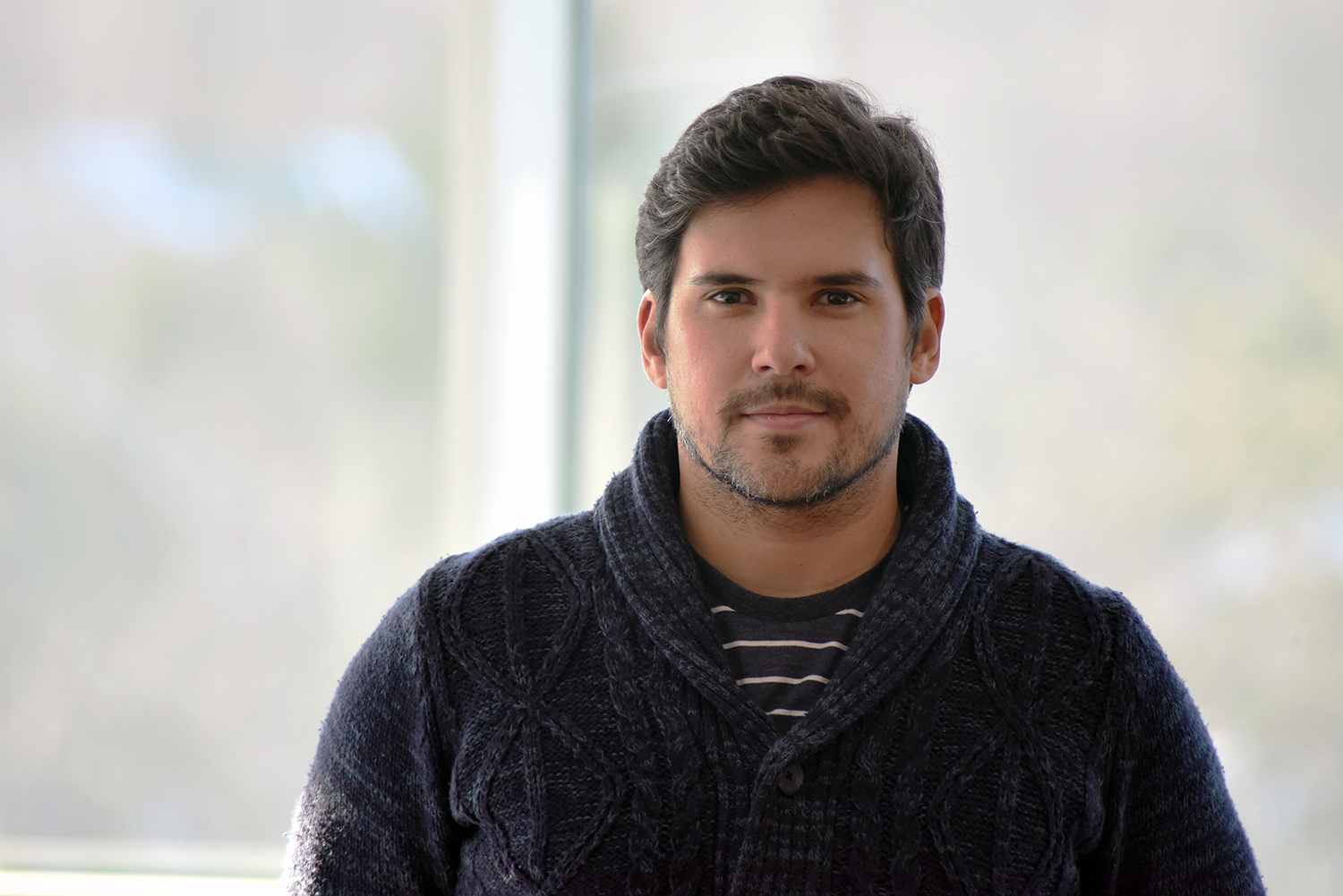
Thomaz Barbosa
Current Position: Ph.D. Candidate in Government and Public Administration
Year at CTG: 2019
Country: Brazil
Research Focus at CTG:
Thomaz's focus at the CTG was to finish writing his thesis about the process of opening government data in the Municipality of São Paulo His specialties include government accountability, democratic governance, transparency and open government data.
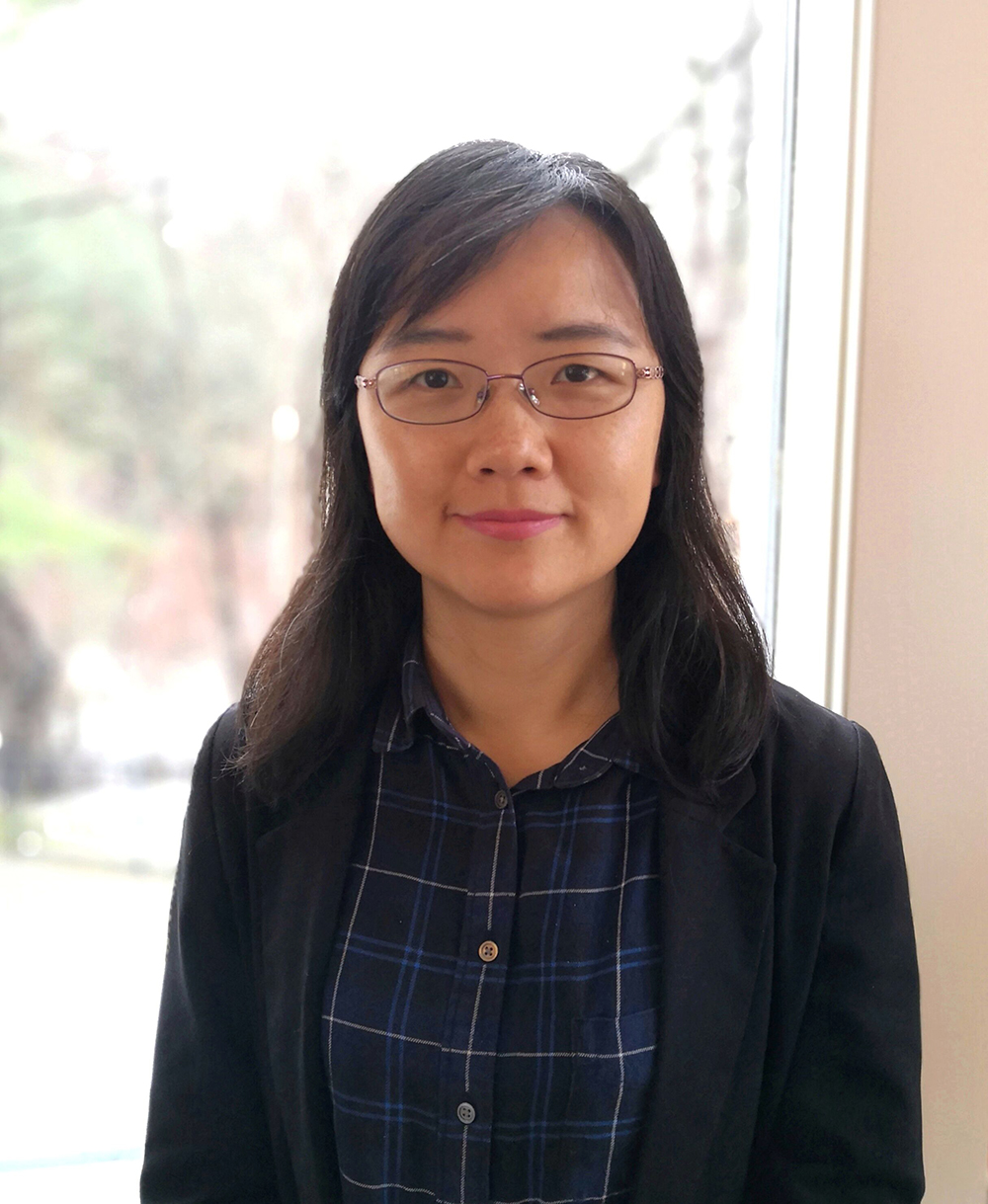
Tiejun Gu
Current Position: Donghua University, China
Year at CTG: 2019
Country: China
Research Focus at CTG:
Tiejun is an associate professor at College of Humanities, Donghua University, China.
Her current research interests mainly focus on digital government, new media communication, information and knowledge management, especially government communication and citizen engagement in social media environments.
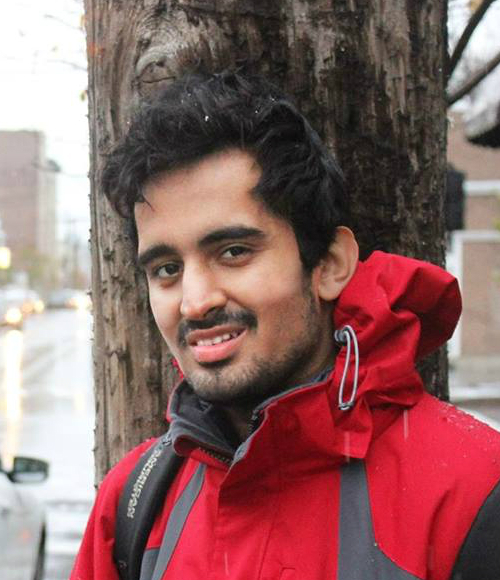
Ashish Balani
Current Position: Fidelity Investments
Year at CTG: 2018
Country: United States
Research Focus at CTG:
Ashish was a research assistant at CTG UAlbany before becoming a software engineer at Fidelity Investments in Boston in mid-2018.
During his time in Albany, he worked on a number of projects, including ERMS (Electronic Record Management System) and CMS (Content Management System).
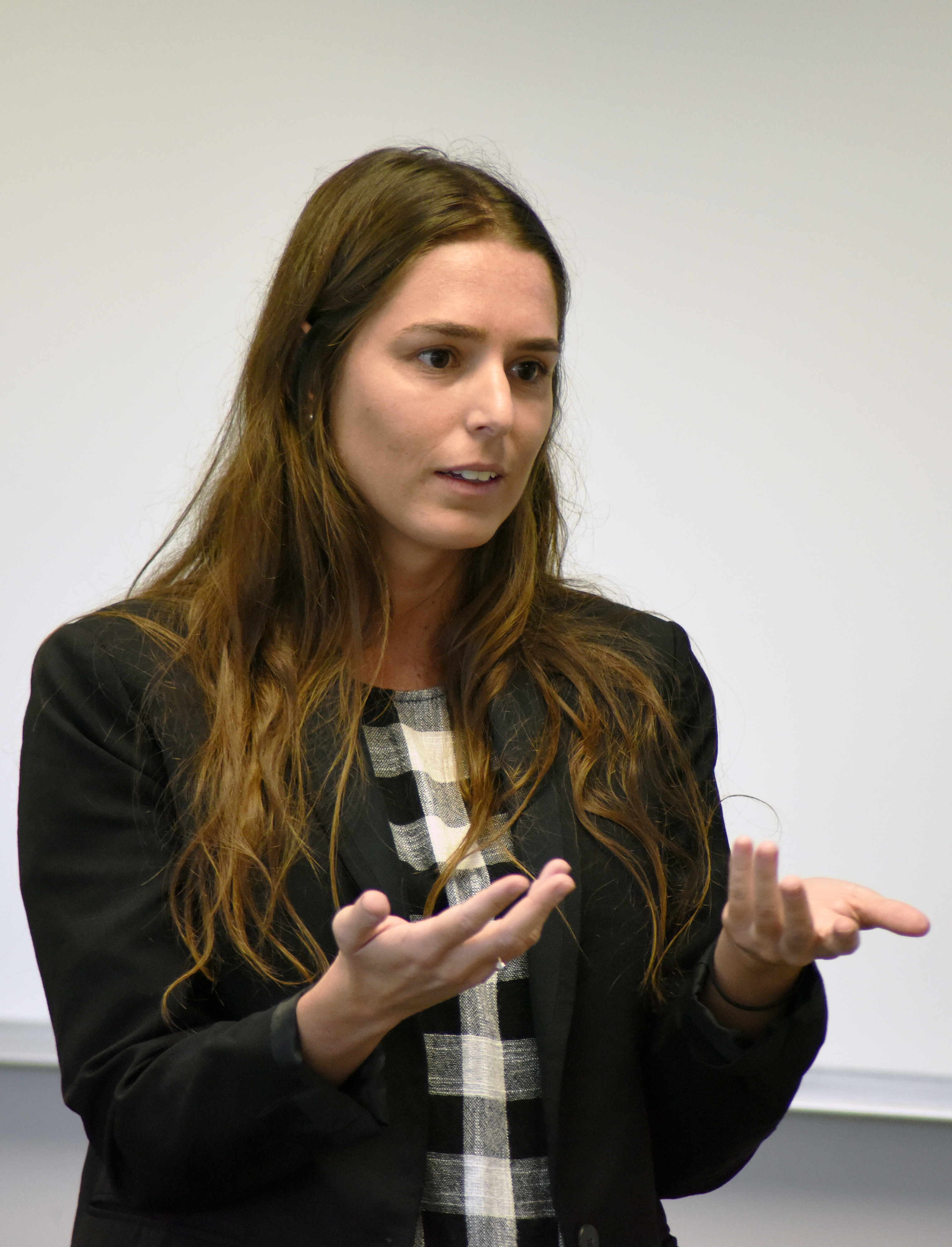
Gabriela Pereira
Current Position: Postdoc Researcher at the Department for E-Governance, Danube University Krems, Austria
Year at CTG: 2018
Country: Brazil
Research Focus at CTG:
New capabilities for policymaking in cities, changing nature of the IT artifact in smart city research, governance structures in smart cities

Lingjun Fan
Current Position: Research Director at the Institute of Computing Technology, Chinese Academy of Sciences
Year at CTG: 2018
Country: China
Research Focus at CTG:
Smart Cities, Big Data, Block Chain Technology, Computer Architecture.
With a background in information technology, his research focuses on how to construct a better information environment for building smart cities, and how to govern big data in government.
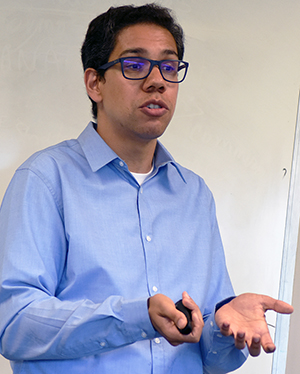
Marcelo Araujo
Current Position: Ph.D. Candidate in Business Administration at University of Sao Paulo (Brazil) in the School of Economics, Business and Accounting (FEA/USP)
Year at CTG: 2018
Country: Brazil
Research Focus at CTG:
From digital divide to digital inequalities, the implications from internet access and digital skills in harnessing online opportunities in Brazil.
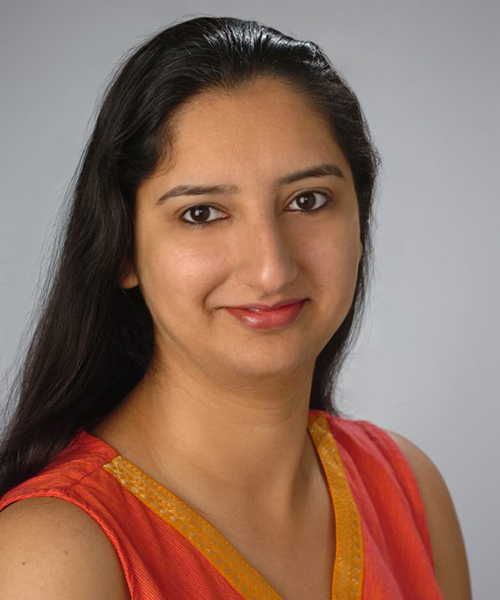
Nidhi Vij
Current Position: Assistant Professor - University of Mississippi
Year at CTG: 2018
Country: United States
Research Focus at CTG:
Open Government initiatives, Mobile technologies, Internet transparency
With a background in economics, her research focuses on the use of Information Communication Technologies (ICT), especially mobile technologies in public administration and in social welfare policies in a global comparative context.
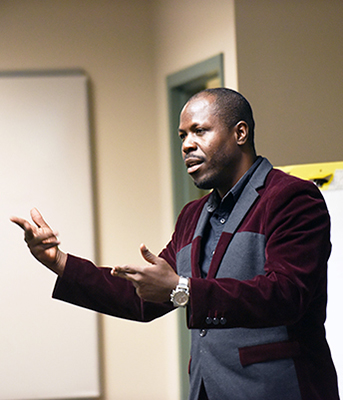
Pierre Merolien
Current Position: 2017-18 Hubert Humphrey Fellow (based out of Syracuse University)
Year at CTG: 2018
Country: Haiti
Research Focus at CTG:
Open government, e-government, technology policy, and management of technological development. Hands-on experience in emerging technologies and how innovative governments can use and govern them for the public good.
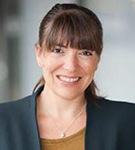
Alessia Neuroni
Current Position: Professor in the Department of Business, Health and Social Work at Bern University of Applied Sciences & Deputy Head of the University's E-Government Institute.
Year at CTG: 2016
Country: Switzerland
Research Focus at CTG:
During her time at CTG, Alessia's research focused on governance issues and design options for national data infrastructures. She met with several CTG staff to discuss shared research interests and explore potential areas of future collaboration.
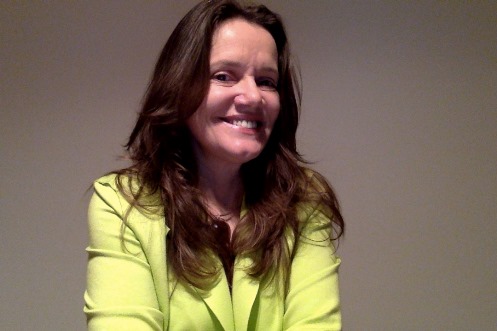
Beatriz Barreto Brasileiro Lanza
Current Position: PhD Student in Business Administration at Federal University of the State of Paraná (UFPR) and Senior Analyst at IT Company of the State Government (CELEPAR).
Year at CTG: 2015
Country: Brazil
Research Focus at CTG:
During her time at CTG, Beatriz researched a conceptual eGovernment Business Model with a particular focus on low cost and long range technologies for developing countries.
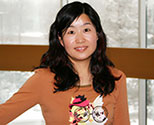
Lili Fan
Current Position: Associate Professor in Chang’an University, P.R. China
Year at CTG: 2015
Country: China
Research Focus at CTG:
During her time at CTG, Lili researched about the business models and the cooperation between government and private sector organizations in the fields of travel information and meteorology data services in China.
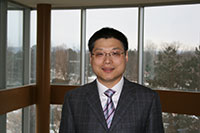
Shaohui Wang
Current Position: Associate Professor in the School of Political Science and Public Administration, Wuhan University, P. R. China
Year at CTG: 2015
Country: China
Research Focus at CTG:
During his time at CTG, Shaohui researched about how to use social media to promote the innovation of government public services.
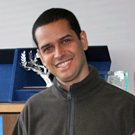
Cristiano Ramos Moreira
Current Position: Master's Student at the School of Business, Pontifical Catholic University of Rio Grande do Sul
Year at CTG: 2014
Country: Brazil
Research Focus at CTG:
During his time at CTG, Cristiano conducted a review of the use of “smart sensors” in cities to help support CTG's smart cities program. He also worked on his research into smart city initiatives, looking specifically at New York City, to do further comparative work with his studies conducted in Porto Alegre; as well as worked on developing an approach for researchers who wish to work together on comparative analysis studies in Latin America.

David Valle-Cruz
Current Position: PhD Student and Adjunct Professor at Autonomous University of the State of Mexico
Year at CTG: 2014
Country: Mexico
Research Focus at CTG:
During his time at CTG, David studied new trends of technology implemented in e-government, trying to categorize the ideal technical features of electronic government systems that could help to improve efficiency and transparency and to reduce corruption.

Jorge Lheureux de Freitas
Current Position: Master's Student at the School of Business, Pontifical Catholic University of Rio Grande do Sul
Year at CTG: 2014
Country: Brazil
Research Focus at CTG:
During his time at CTG, Jorge conducted a review of “humans as sensors” in cities and presented his results to CTG staff to help support the Center’s smart cities program. He also worked on his master’s thesis and gave another presentation to CTG staff on his thesis and the Brazilian electronic voting system, which Jorge helped to design and implement.
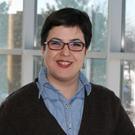
Nur Sat
Current Position: Assistant Professor in the Department of Political Science and Public Administration at Hitit University
Year at CTG: 2014
Country: Turkey
Research Focus at CTG:
During her time at CTG, Nur conducted research to complete her studies about sustainability concepts and smart cities and worked with CTG staff to support the Smart Cities Program and other research activities.
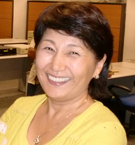
Zamira Dzhusupovat
Current Position: Independent consultant and expert at United Nations Development Programme (UNDP)
Year at CTG: 2014
Country: Kyrgyzstan
Research Focus at CTG:
During her time at CTG, Zamira collaborated on her shared interests in research and capacity building projects focused on electronic government development in post-Soviet countries.
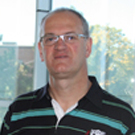
Cláudio Sonáglio Albano
Current Position: Lecturer and PhD student in Business Administration, University of São Paulo, Brazil
Year at CTG: 2013
Country: Brazil
Research Focus at CTG:
During his time at CTG, Claudio conducted research to complete his degree, focusing on Open government data: a value chain model proposal.
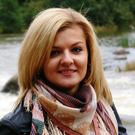
Lyudmila Bershadskaya
Current Position: Analyst, eGovernment Center, St. Petersburg National Research University of Information Technologies, Mechanics, and Optics
Year at CTG: 2013
Country: Russia
Research Focus at CTG:
During her time at CTG, Lyudmila presented on the St. Petersburg National Research University of Information Technologies, Mechanics, and Optics.
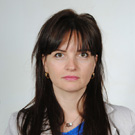
Milena Yordanova Krumova
Current Position: Assistant Professor, Faculty of Management, Technical University, Sofia
Year at CTG: 2013
Country: Bulgaria
Research Focus at CTG:
During her time at CTG, Milena focused on her research in Web 2.0/3.0 applications for creating and sharing new knowledge, and in Public Administration 2.0, Enterprise 2.0 and Learning 2.0 principles, along with participating in several seminars, workshops, and presenting her research.

Hannu Larsson
Current Position: Researcher and Teacher at Örebro University, Sweden
Year at CTG: 2012
Country: Sweden
Research Focus at CTG:
During his time at CTG, Hannu met with staff to discuss shared research interests, presented his research on Sustainability for eGovernment, and attended the ICEGOV 2012 conference.He also showed how us how Fika is done in Sweden, their morning social break ... we liked that!
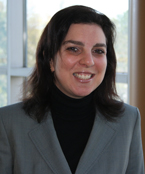
Marie Anne Macadar
Current Position: Associate Professor, School of Business at Pontifical Catholic University of Rio Grande do Sul, Brazil
Year at CTG: 2012
Country: Brazil
Research Focus at CTG:
During her time at CTG, Marie focused on internationalizing her research on Information Systems in Brazilian Public Health and contributed to current CTG projects. Current bio >>
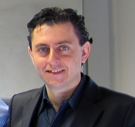
Ignacio Criado
Current Position: Professor, Universidad Autónoma de Madrid, Spain
Year at CTG: 2011
Country: Spain
Research Focus at CTG:
During his time at CTG, Ignacio conducted research about interoperability of e-Government developments in multi-level systems, with a special focus on the case of health policy in the United States and Spain.
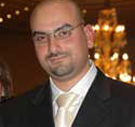
Karim Hamza
Current Position: Academic Researcher, Maastricht School of Management (Netherlands); Part-Time Professor, American University (Egypt); and Approved Tutor, Edinburgh Business School (UK)
Year at CTG: 2011
Country: Egypt
Research Focus at CTG:
During his time at CTG, Karim gave a research discussion on governance structures for building democracy in Egypt, and met with CTG staff to plan future research collaborations focused on the use of social media in government.
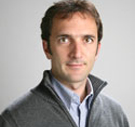
Olivier Glassey
Current Position: Assistant Professor, Swiss Graduate School of Public Administratio
Year at CTG: 2011
Country: Switzerland
Research Focus at CTG:
During his time at CTG, Olivier met with staff to talk about shared research interests and presented a research discussion on the tensions between privacy and transparency issues from a European perspective through proposing a model for data, identity, and privacy management.
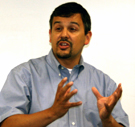
Rodrigo Sandoval Almazan
Current Position: Teaching Professor, State Autonomous University, Mexico
Year at CTG: 2011
Country: Mexico
Research Focus at CTG:
During his time at CTG, Rodrigo met with CTG staff and students to discuss open government, social media, and advancements in e-government research. He also shared his research about open government adoption in Mexico.

Antonio Cordella
Current Position: Lecturer, Information Systems and Innovation Group, Department of Management, London School of Economics
Year at CTG: 2010
Country: Italy
Research Focus at CTG:
During his time at CTG, Antonio met with staff at CTG to talk about shared research interests and presented a research discussion about an e-Government enactment framework. Current bio >>
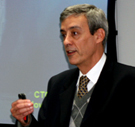
Lorenzo Madrid
Current Position: Chief Technology Officer for the Latin America Region and World Wide Director for the Government Interoperability Initiative, Microsoft
Year at CTG: 2010
Country: Brazil
Research Focus at CTG:
During his time at CTG, Lorenzo worked with staff and graduate students on shared research interests. As part of his visit, he gave a presentation on The Economic Impact of Interoperability in Delivering Electronic Citizen Services and was guest lecturer at Theresa Pardo's Department of Public Administration and Policy class, Information Technology Innovation in the Public Sector.
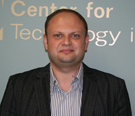
Evgeny Styrin
Current Position: Senior Research Analyst, Institute for Public and Municipal Administration, Higher School of Economics, Moscow
Year at CTG: 2009-2010
Country: Russia
Research Focus at CTG:
During his time at CTG, Evgeny was an integral part of the project team gathering information on how New York State agencies used technology resources to capture, manage, and deliver the data required for the American Recovery and Reinvestment Act (ARRA). In addition, he also worked in close contact with his colleagues at UAlbany's Rockefeller College, where he held a faculty affiliation for his Fulbright Fellowship.
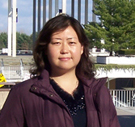
Lin Zhu
Current Position: Assistant Professor, Department of Public Administration of East China University of Science and Technology, Shanghai
Year at CTG: 2008
Country: China
Research Focus at CTG:
During her time at CTG, Lin integrated herself as a member of various research project teams and was a co-author on several writing projects. She shared her work in China at a CTG research discussion, Improving Citizen Access to Government Information in China.
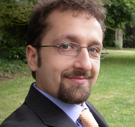
Enrico Ferro
Current Position: Head of Business Model and Policy Innovation Unit at ISMB; Lecturer of Innovation Management in the Public Sector at International Labour Organization (UNITED NATIONS); Adjunct Professor at Polytechnic of Turin
Year at CTG: 2004-05
Country: Italy
Research Focus at CTG:
Enrico spent six months at CTG, during which he collaborated with researchers on a number of projects concerning the relationship between eGovernment and the digital divide, as well as the use of online auctions for the sale of government surplus property. Current bio >>
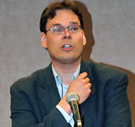
Marijn Janssen
Current Position: Professor of Information and Communication Technology (ICT) at Delft University of Technology
Year at CTG: 2004
Country: The Netherlands
Research Focus at CTG:
While at CTG, Marijn worked with staff on international e-government business models. At the 2005 eChallenges conference in Ljubljana, Slovenia, Anthony Cresswell, Marijn Janssen, and Luis Luna-Reyes received the Best Paper Award for Modeling Methods for Information Integration: Comparative Cases in e-Government. Current bio >>
Conferences
CTG UAlbany researchers and fellows participate in numerous top academic conferences each year around the world by presenting papers, facilitating workshops, and delivering keynote speeches.
We participate on the Advisory Boards, Organizing Committees and Program Committees to assist with the planning and preparation to ensure a conference's success.
These conferences are widely recognized as the most important outlets in the field of digital government around the world.
- International Conference on Theory and Practice of Electronic Governance (ICEGOV)
- Annual Conference on Digital Government Research (dg.O)
- Hawaii International Conference on System Sciences (HICSS)
- IFIP Electronic Government (EGov) & Electronic Participation Conference (EPart)
Call for Papers
No call for papers at this time.
Publications
Over the last decade, CTG UAlbany researchers have been recognized among the top 10 scholars in the field of digital government worldwide based on publications and citations.
Our researchers also serve as editorial board members some of the best academic journals in the field of Digital Government.